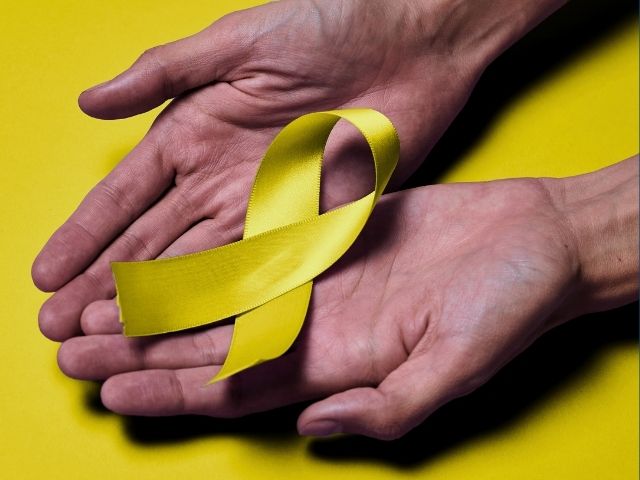Events | Holidays & Freebies National Nurses Week: Honoring Our Favorite Pop Culture Practitioners National Nurses Week runs from May 6-12, and includes a variety of ways to honor nurses. This year’s theme is “Nurses Make the Difference.” As part...


LPN
September is suicide awareness and prevention month, and nurses play a key role in the assessment and prevention of suicide among their patients. Let us discuss suicide warning signs for different age groups, additional resources and education for nurses, and suicide risk among nurses themselves.

As a nurse, it is important to recognize the early warning signs a patient may be contemplating taking their own life. As a nurse, you should:
Patients who are considering self-harm may try to reach out to you directly or indirectly. Rarely will patients immediately volunteer the information they are thinking of harming themselves. Instead, they may describe their concerns in terms of physical symptoms.
Some imminent suicide warning signs include:
These signs are especially critical if the patient has a history or current diagnosis of a psychiatric disorder such as depression, alcohol or drug abuse, bipolar disorder, or schizophrenia.
Age is also a factor when it comes to risk factors for suicide. Elderly patients are at an increased risk of dying by suicide. This is typically due to an undiagnosed mental illness associated with suicide such as depression or suffering from a medical condition or terminal illness that includes chronic pain.
Nurses should pay special attention to older patients who:
Adolescents are also at an increased risk of dying by suicide. School nurses or other nurses working with adolescents should be aware of these warning signs:
Recognizing the warning signs of both high-risk age groups is the first step in preventing suicide. As a nurse, your response to any warning signs should be focused on patient safety, providing empathy and support, and ensuring that the patient receives the mental health or social services needed to reduce the patient’s risk.
Asking difficult questions can assist in assessing the suicide risk of the patient. These questions often include:
Do you ever wish you could go to sleep and not wake?
Do you have thoughts of self-harm?
Do you have a plan to hurt yourself?”

Immediate action by the nurse is vital if you have any reason to believe that the patient is in imminent danger or poses a danger to themselves.
Immediate action should also be taken when warning signs are combined with any of the following risk factors:
As mentioned above, the nurse’s role in suicide prevention and managing mental health crises is very important. If your place of employment does not have a crisis intervention plan or does not provide training for crisis intervention, advocate for the implementation of a clear crisis intervention plan.
A crisis intervention plan consists of steps set forth by your employer to inform their employees what they should do in a crisis including a mental health crisis. Ensuring that all members of the healthcare team know what to do in a crisis helps to empower nurses and keep patients safe from self-harm.
In addition to a crisis intervention plan, taking additional courses on suicide prevention may be helpful. Mental health first aid is another option for those wanting additional knowledge and certification on mental health crisis intervention. I can attest this course is incredibly helpful and informative as I became certified in 2020.
Finding yourself in a mental health emergency can be an overwhelming and stressful experience, especially if you do not specialize in mental health or psychiatric nursing. This course will assist you in feeling better equipped when faced with a patient in mental distress and guide you in improving the situation.
The mental health first aid course will explain what you need to do in a crisis until help arrives. You will learn about early warning signs of mental illness, how to communicate well, and where to find professional mental health help in your local community for the patients you care for.
In a mental health first aid training course you will learn about mental health problems and disorders including:
You will also learn how to deal with the following mental health crisis situations:
The course will teach you how to provide mental health first aid by using the ALGEE action plan. ALGEE is:
This course is not just for nurses, it is also beneficial for social workers, police officers, teachers, youth workers, and counselors.
Participating in this course will equip and ensure you are better prepared to help someone in crisis. The more people who participate in this course, the greater the impact on reducing suicide.
Another resource that is important for patients to be informed about is the Suicide and Crisis Hotline. The hotline was implemented in 2005 and is formally known as The National Suicide Prevention Lifeline. The hotline number is 988.
The Suicide and Crisis Hotline provides 24/7 free and confidential support for people in distress. It provides prevention and crisis resources for individuals considering suicide. An individual may call for themselves or for someone they are concerned about.
Although nurses are health professionals that play a key role in preventing suicide among their patients, nurses are also at an increased risk of suicide themselves. Being a nurse is a high-stress career, and although rewarding, nurses face several challenges.
The following list includes factors that increase suicide risk among nurses:
Unfortunately, there is still a stigma around asking for help. Normalizing mental health conversations is a crucial factor in reducing suicides among nurses and the general public. Nurses have been at a higher risk of suicide than the general public for many years.
Now the added stressors of social unrest, nurse shortages, and the aftermath of the pandemic increase that risk. There are no known fool-proof ways to prevent all nurse suicides, however, we can learn ways to reach nurse colleagues in a dark place of depression to reduce the risk of a nurse acting on suicidal thoughts.

In conclusion, suicide is an epidemic and does not discriminate against any race, age group, or career. Everyone has the potential to fall victim to depression or suicidal thoughts at some point in their lifetime.
Knowing the risks and providing early intervention will aid in suicide prevention. While we may not be able to stop every suicide, we can dramatically decrease the incidence rate by being well-educated on the topic and taking quick and appropriate action.
Love what you read?
Share our insider knowledge and tips!
Read More

Events | Holidays & Freebies National Nurses Week: Honoring Our Favorite Pop Culture Practitioners National Nurses Week runs from May 6-12, and includes a variety of ways to honor nurses. This year’s theme is “Nurses Make the Difference.” As part...

Events National Cancer Prevention Month February is National Cancer Prevention Month 2024! Nurses can be an educational resource for patients on how to protect themselves. Cancer prevention can look like lifestyle changes to minimize modifiable risk factors and...

Events International Prenatal Infection Prevention Month 2024 February is International Prenatal Infection Prevention Month 2024! Learn about a nurse’s role in educating patients on how to protect themselves. Common prenatal infections you can explore with...